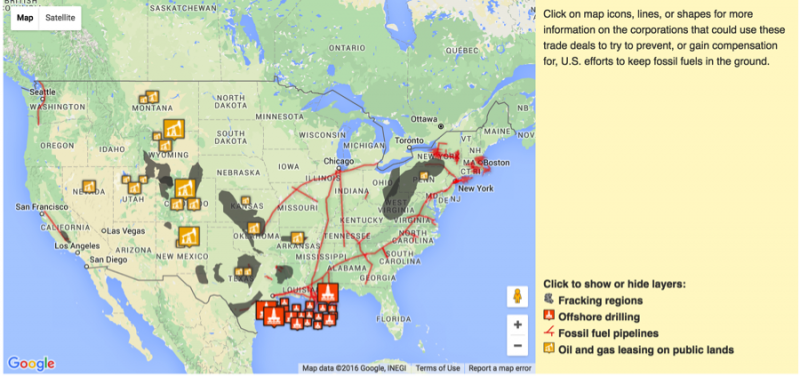Last November, my deskmates at Sojourners (and my colleagues working all the way on the other side of the office) were interrupted by my joyful whooping and hollering at the news that President Obama had finally, finally killed the Keystone pipeline once and for all. Leading climate activist (and Sojourners contributing editor) Bill McKibben noted that the significance of the decision rippled far beyond Keystone XL itself: It made the president “the first world leader to reject a project because of its effect on the climate.”
Over the years, Keystone XL had become known by activists and journalists alike as “the zombie pipeline” — with delay after delay in the review process and legislative defeats followed by legislative resurrections in Congress as members attempted to expedite approval, the issue just wouldn’t die.
So, truth be told, it really shouldn’t have been a surprise when in January, Keystone scratched and crawled one arm out of the grave in order to leave us one last parting gift.
TransCanada, the Canadian company that would have built the Keystone XL pipeline, sued the United States for $15 billion in compensation under the Investor-State Dispute Settlement provision of NAFTA.
In a nutshell, ISDS allows corporations and foreign investors to challenge a country’s laws — even policies in the public interest like environmental regulations — if they don’t conform to the investors’ expectations or if they cut into their profits. ISDS suits are heard by an unaccountable tribunal of private lawyers (most of whom actually spend much of their time representing corporations in cases against governments).
So let me repeat that. A Canadian company sued the United States government — for $15 BILLION — for doing its job and protecting its people and the planet by denying a permit for TransCanada’s risky, polluting, greenhouse-gas-spewing mega-pipeline. And if they win, U.S. taxpayers have to pay them that $15 billion.
The worst part is that this phenomenon could potentially go global. If two enormous new trade deals, the Trans-Pacific Partnership and its lesser-known European cousin, the Trans-Atlantic Trade and Investment Partnership, are passed, then the right under ISDS to challenge U.S climate policies would be expanded to more than 100 of the biggest fossil-fuel companies on the planet through thousands of U.S. subsidiaries.
This threat to our climate has been exhaustively researched and meticulously detailed in a new report by the Sierra Club, Climate Roadblocks: Looming Trade Deals Threaten Efforts to Keep Fossil Fuels in the Ground.
The full report is a must-read , but the best way to get one’s arms around what these deals represent is the Sierra Club’s interactive map (screenshot below). It shows all of the fossil fuel extraction areas and infrastructure projects across the country where foreign fossil fuel companies could use ISDS to either prevent U.S. policies to keep fossil fuels in the ground or demand compensation for such policies.
So it’s clear that the TPP and TTIP would make TransCanada’s zombie pipeline suit look like the backup dancers from Thriller instead of The Walking Dead.
But the zombie metaphor doesn’t fully capture the threat here. In truth, the most pernicious effects of the TPP and TTIP mean that they operate more like vampires (stay with me).
The TPP’s vampiric effect stems from allowing hundreds of new corporations (with thousands of subsidiaries) to bring suits that demand hundreds of millions or even billions of dollars in compensation. Even governments that manage to beat back corporate vampires and win the cases brought against them have to shell out millions of taxpayer dollars defending themselves. So win or lose, taxpayers are drained dry.
This, in turn, leads to perhaps the most deadly effect of all: the White Walker effect. In the hit series Game of Thrones, the White Walkers are the main antagonists, an ancient race of blue-eyed, grey-skinned ice monsters that bring with them eternal winter from the North (this is not a TransCanada joke, I promise).
Similarly, the regulatory chilling effect of ISDS suits is probably the biggest climate threat of all from TPP. The Sierra Club’s report provides multiple examples of governments, faced with the looming threat of enormously costly lawsuits from multi-national corporations, that have watered down their environmental laws (or demurred from even pursuing their passage in the first place).
The bottom line from these threats to U.S. climate policies is that the support for the TPP and TTIP by the Obama administration is entirely self-defeating. As this report makes clear, these trade deals threaten to directly undermine climate policies all over the U.S., among them ,fights against fracking, against offshore drilling, and against fossil-fuel leasing from public lands.
These, of course, are all areas in which the Obama administration has started to make preliminary, tentative progress in just the last few months, as the president looks toward securing his climate legacy. Passage of these deals would threaten to completely undermine and roll back that progress.
The only way to fully convey such climate-related cognitive dissonance is, of course, through supernatural analogies:
It’s like if Sherriff Rick Grimes decided to kill a dozen zombies with his .357 caliber Colt Python and then led the rest of the horde to his group’s encampment.
It’s like if Buffy Summers decided that, after defeating the ancient vampire, The Master, she should probably just open up the Hellmouth beneath Sunnydale High School and let all of his cronies through.
It’s like if Jon Snow, having just been elected Lord Commander of the Night’s Watch, decided that he and the soldiers under him should abandon the 700-foot Wall protecting the Seven Kingdoms from the White Walkers in favor of a permanent vacation in the Summer Isles.
That last analogy doesn’t quite work, of course, because Jon Snow knows nothing. President Obama, by contrast, is fully aware of what climate science is telling us, and his trade policies should reflect that knowledge.
Got something to say about what you're reading? We value your feedback!


